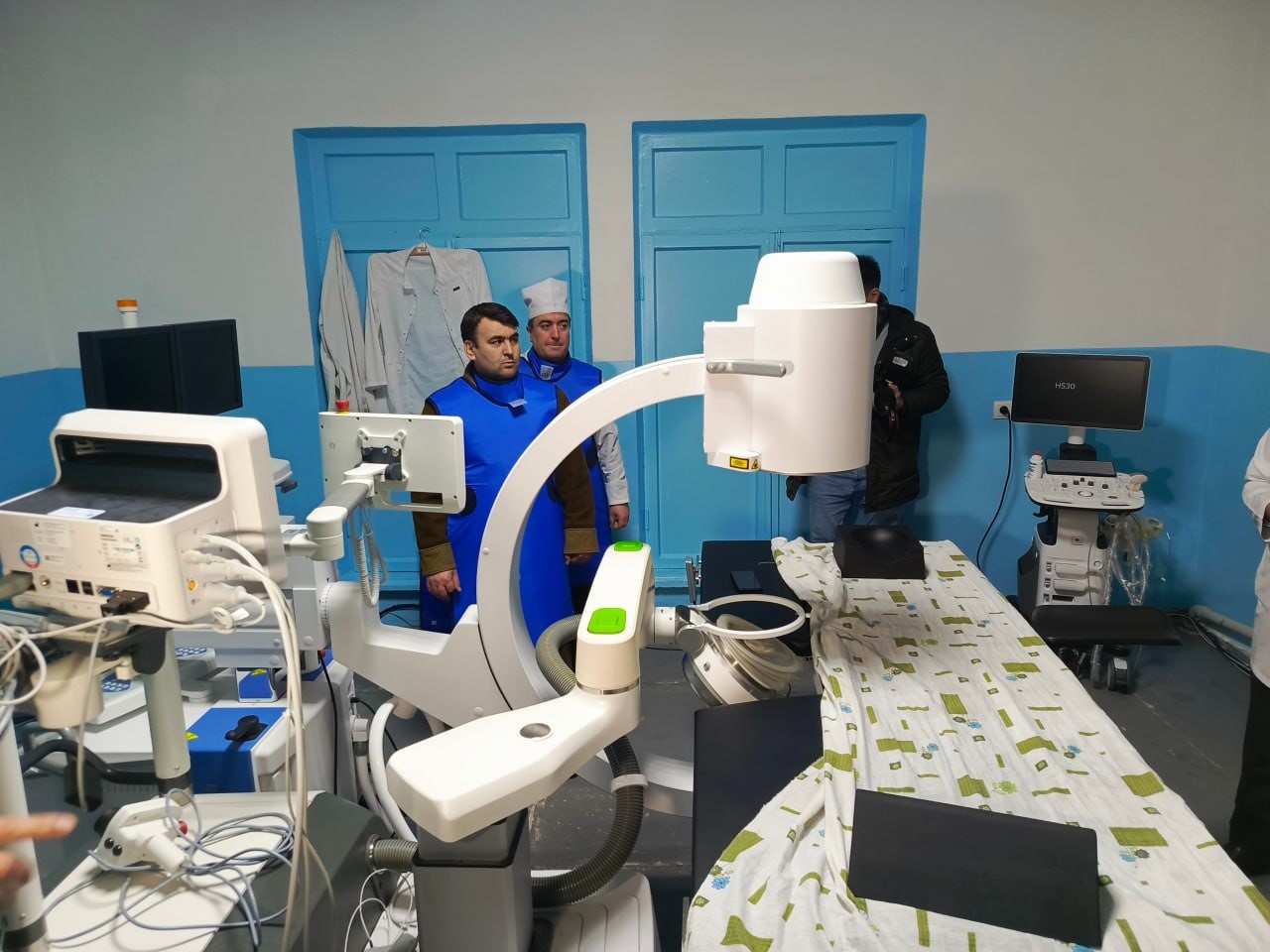Japan's assistance to Tajikistan's Health Care system
For thirty years, Tokyo has been focusing its development aid for Dushanbe on hospitals and mobile first aid devices. Interventions that have led to significant improvements in some areas. Now the goal is to bring the whole of Tajikistan up to the minimum health care standards set by the World Health Organisation by 2030.
Dušanbe (AsiaNews) - The Japanese embassy in Dušanbe, together with the Japanese International Cooperation Agency (Jica), organized a tour for journalists to show projects for improving the healthcare system in Tajikistan.
In fact, it is thanks to Tokyo's support that Tajik regional health institutions are able to obtain more modern and adequate equipment, often without analogies to those normally used in the country.
In the central hospital of the city of Vakhdat, for example, a video-gastroendoscope has recently been installed, and the endoscopist surgeon Radžab Zajniddinov explained how much this tool has facilitated his work and the care of patients: "If the local inhabitants first they were forced to turn to the institutes in Dušanbe for the diagnosis, since 2020, thanks to the help of the Japanese, we have begun to provide answers here too". The endoscope with the video camera allows you to analyze the conditions of the interested organic groups, with detailed data collection.
Zajniddinov adds that “the most frequent reasons for using the video endoscope are nosebleeds, blocked nose, suspicion of sinusitis, polyps or foreign bodies, swallowing problems and worsening of hearing”.
According to Vakhdat doctors, 10-15 patients with these symptoms arrive every day not only from the city, but also from adjacent provinces. The entire diagnostic procedure is transmitted through the video camera, and even the relatives of the patients can observe everything through the monitors. In 2021, the Japanese embassy made equipment worth over 89 million dollars available to this hospital.
The journalists then visited the Dangara hospital, where even with the Japanese intervention there was a major renovation of the structures, especially with the delivery by Jica of a portable ultrasound scanner, as well as other similar equipment, resuscitation beds, autoclaves and portable difficult to follow. Japan has also allocated over 5 million dollars for ambulances, already delivering almost a hundred throughout Tajikistan.
In the capital Dušanbe, representatives of the press were able to learn about a large project to improve healthcare facilities in the Šifobakš national medical center, where 42 new machines have been installed for a total of 6.5 million dollars.
One apparatus that has no equivalent throughout Tajikistan is a remote lithotripter, for the procedure of crushing and reducing stones in order to facilitate their elimination without surgery, so the patient can be dehospitalized the same day.
The director of Jica in Tajikistan, Seizo Imai, observed that all these projects are a clear example of positive collaboration between governments for the social development of a country that is still very backward in many fields such as medicine.
“We have been working together with the Dušanbe government since 1993 – Imai recalled – and priority has always gone to interventions for the health system”. He believes that human resources are just as important as technological ones, and therefore the Japanese partners regularly carry out refresher courses for specialists in the sector.
The intention of the Japanese is to further expand collaboration with the government and all relevant institutions in Tajikistan, to achieve overall standards of care for the entire population (UHC) thanks to the creation of a comprehensive national strategy by 2030 for care of the health of all citizens of the country.
07/02/2019 17:28







.png)










